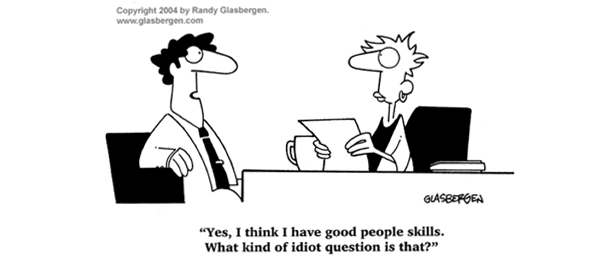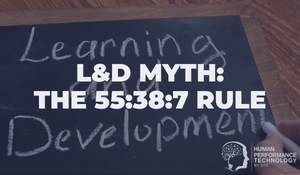5th Core of Emotional Intelligence: Social Regulation
There was a rather unusual political slip of the tongue that made headlines. Robyn Parker (the NSW Liberal Environment Minister) was being questioned at the State Parliament over her Government's election commitment to protect threatened species, including koalas. She faced a grilling from Labor MP Luke Foley, who asked her to explain her decision to allow logging in important koala habitats, to which she said:
"... that logging protects koalas."
Whoops daisy Ms. Parker.
Mr. Foley pounced with venom on the contradiction: "How does the logging *protect* koalas?! It removes its habitat Minister!!"

Later Ms. Parker admitted that "[It] doesn't help koalas you know, this was a heated exchange. I was interrupted continuously and so I've missed a couple of words out in one sentence.” The incident put her in the line of fire of both Labor and the Greens, and promoted calls for her to be sacked. Full Clip Here.
Yep, that’s politics. A game of words. Stumble over a sentence and then look up to see the guillotine tearing down on your neck.
In no other profession are you able to witness the full breadth of social regulation on display like you can in politics. It requires supreme social versatility. You need to communicate, persuade, build rapport, collaborate, negotiate and influence on many different levels; on the parliament floor, in the town hall, through the camera lens, with journalists, with colleagues, with your department and team, with the other political parties, with industrial giants, businesses and unions, with a range of public servants, with international delegates and on local streets.
You must be able to handle your emotions artfully in all of these situations, under the glare of the cynical public and an opposition that would like nothing better than to see you lose your head; and help fast-track the process. Sometimes emotions are best displayed out in the open (e.g. with a natural disaster) and sometimes emotions are best handled quietly (e.g. with an internal party dispute). Sometimes you must be soft (e.g. to relate to the people in your local electorate) and sometimes you must be steel (e.g. in pointing out the incompetence of your opposing number).
The result is that you can turn on the 6 o’clock news and literally see the emotional intelligence of the nation’s elite on trial; putting their social regulation to their highest testing points. Sometimes failing spectacularly, but always there is something the viewer can learn from their social artistry (even if it's what not to do).
- Top performing businesspeople, like the best politicians (if that’s not a contradiction), understand that how they deal with others is what makes or breaks a career:
- The telemarketer makes the slightest voice tone inflection to disarm his prospect;
- The events coordinator has each of her suppliers paraphrase the specs she gave them so she knows they are 100% clear;
- The lawyer for the prosecution uses his story-telling training to take the jury on a vivid journey of the events on the day of the murder;
- The financial analyst uses a favour to get a friend-of-a-friend’s uncle to get a vital piece of information that will help with cost projections for mining operations in the Philippines;
- The CEO juggles a fine balance between white-hot conviction and graceful composure to persuade the board to expand into new markets.
“The ability to deal with people; I will pay more for that ability than for any other under the sun.” - John D. Rockefeller (in today’s dollars, the richest person in the history of mankind).
Social Regulation Defined:
A proficiency in managing relationships and building networks.
Being an adept communicator is the keystone of all social regulation. Among managers, communications competence strongly distinguishes star performers from average or poor ones.
Social Regulation are underpinned by the other four cores of EQ. Listening well, they key to empathy, is the most crucial competence in getting your message across. As Peter Drucker would say, “The most important thing in communication is to hear what isn't being said.”
Being aware of, and in control of our moods, are also essential to good communication. The reason that Ms. Parker gave for her slip up was that she was in a heated exchange, and apparently lost her ability to think clearly while under pressure. As the saying goes, “Speak when you are angry - and you'll make the best speech you'll ever regret.”
The 8 core components of Social Regulation are:
- Influence (wielding effective tactics for persuasion)
- Communication (listening openly and sending clear, convincing messages to others)
- Conflict Management (negotiating and dissolving disagreements)
- Leadership (inspiring and guiding individuals and groups regardless of position)
- Change Catalyst (initiating and/or managing change)
- Building Bonds (nurturing instrumental relationships for building strong connections)
- Collaboration and Cooperation (working with others toward shared goals)
- Team Capabilities (creating group synergy in pursuing collective goals)

Social Regulation Quotes:
“The most important single ingredient in the formula of success is knowing how to get along with people.” - Theodore Roosevelt
“Remember that the people that you are talking to are a hundred times more interested in themselves and their wants and problems than they are in you and your problems. A person’s toothache means more to that person than a famine in China which kills a million people. A boil on one’s neck interests one more than forty earthquakes in Africa. Think of that the next time you start a conversation.” - Dale Carnegie
“My advice to salesmen is this: pretend that every single person you meet has a sign around his or her neck that says, "Make me feel important." Not only will you succeed in sales, you will succeed in life.” - Mary Kay Ash
“There are two things people want more than sex and money... recognition and praise." - Mary Kay Ash
“Wise words often fall on barren grounds, but a kind word is never thrown away.” - Arthur Helps
“The people who I have trouble dealing with… are people who tend to not give full information. They purposefully leave out certain parts of the story – they distort facts.” - Shelley Lazarus
“What we say is true and forthcoming – not just technically correct.” - Dell Inc.’s Code of Conduct
“The single biggest problem in communication is the illusion that it has taken place.” - George Bernard Shaw
“Diplomacy is the art of saying 'Nice doggie' until you can find a rock.” - Will Rogers
“I argue very well. Ask any of my remaining friends. I can win an argument on any topic. People know this and steer clear of me at parties. Often, as a sign of their great respect, they don't even invite me.” - Dave Barry
Topics:
Emotional Intelligence
Theo Winter
Client Services Manager, Writer & Researcher. Theo is one of the youngest professionals in the world to earn an accreditation in TTI Success Insight's suite of psychometric assessments. For more than a decade, he worked with hundreds of HR, L&D and OD professionals and consultants to improve engagement, performance and emotional intelligence of leaders and their teams. He authored the book "40 Must-Know Business Models for People Leaders."



We Would Like to Hear From You (0 Comments)